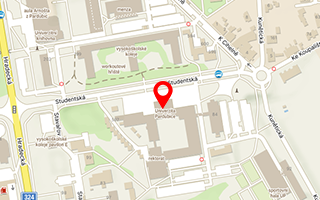|
Characteristics of the specialization:
The aim of the study in the undergraduate and follow-up postgraduate degree programme and specialisation of the same name is to prepare the graduate to be able to independently solve assigned tasks related to electromobility, i.e. electrotechnology and electrical systems in rail and road vehicles and related electrotechnical infrastructure. In addition, the student will gain a broader knowledge of the issues of transport and mechanical construction of vehicles. The graduates are then ready to solve the tasks entrusted to them in a broader interdisciplinary context using appropriate software tools and foreign languages.
What will you learn?
In addition to the general electrotechnical basics (analysis and design of electronic circuits, electrical components, programming in C language, electrical measurements, microprocessor and control technology), the study focuses on the issues of electric traction, power electrotechnology, electronic converters and their regulation, electric drives of road and rail vehicles, power supply systems for dependent and battery traction, autotronics and safety technology in transport. An integral part of education in the specialisation of Electric Traction and Electromobility is obtaining a qualification according to Section 5 of Decree No. 50/1978 Sb. during the follow-up postgraduate study.
Each student can decide to focus on an issue of electrical engineering in rail or road vehicles and related topics that interest them, when choosing compulsory-optional courses. An integral part of the study, which shapes and determines the student's future professions, is the choice of topics for final theses (bachelor's and master's), participation in thematic excursions, or lectures by experts from practice.
Graduates will find employment and career opportunities primarily as technical staff and subsequently also managers in the design, development, testing, approval, maintenance, or operation of road or rail vehicles and related electrical infrastructure.
Linking theory to practice
An integral part of the study is field trips and professional internships of students in companies or selected lectures by experts from practice in the teaching of vocational subjects. Bachelor's theses are usually assigned in cooperation with companies and organisations operating in the field. Students also have the opportunity to participate in research activities related to the content of the study programme.
Career
Our graduates focusing on rail vehicles most often develop and design electrical equipment for locomotives and trams (e.g. Škoda Electric, Siemens, CZ Loko), troubleshoot electrical parts of vehicles as part of their maintenance (e.g. in Metrans Dyko Kolín), are engaged in the development, approval and maintenance of railway signalling systems (AŽD Praha, Správa železnic-TÚDC), design and maintain traction power supply systems (Elektrizace železnic, Správa železnic), or remain at school in doctoral studies and pass on their knowledge to other students.
Graduates of the specialisation of Electric Traction and Electromobility, who are focused on road vehicles, most often find employment and career opportunities as developers and testers of control and propulsion systems in domestic and foreign companies connected to Škoda Auto and VW Group, as electrical designers in the bus industry (Iveco Bus) and in companies engaged in the development and production of self-diagnostic devices. Those interested in the electrotechnology of road vehicles also find employment and career opportunities in the Škoda Motorsport team. With the advent of electromobility in road transport, there is an evident increase in employment and career opportunities for graduates focused on road vehicles not only in low-current, but also in high-performance traction electrotechnology or accumulator technology.
| Files for download | Size |
|---|---|
| Study plan - pdf | 192 kB |
| Medical certificate for work in electrical engineering - pdf | 440 kB |

